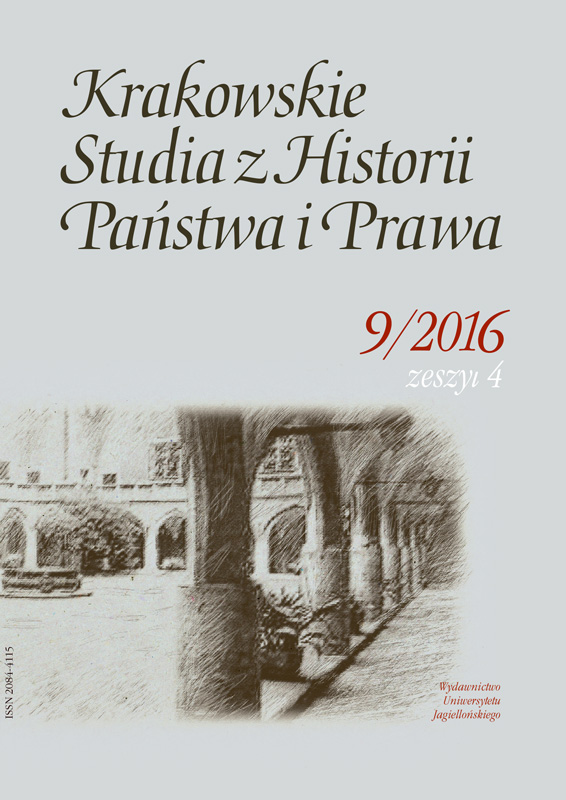Pozycja procesowa approvera w angielskim procesie karnym od XII do XVI w.
Approver’s Procedural Position in English Criminal Trial Between the 12th and 16th Centuries
Author(s): Paweł ZłamańczukSubject(s): History of Law, Political history, Middle Ages, Modern Age
Published by: Wydawnictwo Uniwersytetu Jagiellońskiego
Keywords: approver; abjuration of the realm; benefit of clergy; pardon; sanctuary; trial by jury; trial by battle
Summary/Abstract: The paper analyzes the procedural position of an approver in English criminal trial between the 12th and 16th centuries. The medieval prototype of King’s evidence was the approver – a self-confessed felon who accused his accomplices for their involvement in his crime. He was required to prove the truth of his accusation, either in trial by battle or by verdict of the jury. In the later fifteenth century approvers seem to have become increasingly uncommon. During the sixteenth century developed the practice referred to by historians as appeachment. Unlike accusation by approver, appeachment did not involve trial by battle and nor did it require conviction of accomplices.
Journal: Krakowskie Studia z Historii Państwa i Prawa
- Issue Year: 9/2016
- Issue No: 4
- Page Range: 509-524
- Page Count: 16
- Language: Polish

